Despite the Ukraine war and uncertain energy supplies, global warming and species loss are still the major issues and combined, they remain one of the greatest challenges of our time. KfW Stories talks to Hans-Otto Pörtner, marine biologist and co-chairman of an IPCC working group, about why it is especially important that we do not lose sight of these issues now and what the consequences might be if we do.
About Hans-Otto Pörtner
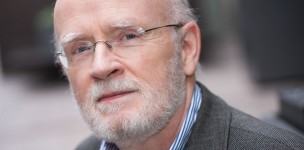
Professor Hans-Otto Pörtner is co-chair of Working Group II of the Intergovernmental Panel on Climate Change. In this role, he coordinated the work for the sixth world climate report on climate impacts, adaptation and vulnerability, which was published at the end of February 2022. He also heads the Integrative Ecophysiology section at the Alfred Wegener Institute, Helmholtz Institute for Polar and Marine Research in Bremerhaven. The expert animal physiologist has been studying the effects of climate change and overuse of nature for many years. He is one of the most prominent critics of “continue on this course” in Germany and instead calls for a radical reversal of previous politics and habits.
Find out moreClimate change is on everyone’s mind, but there is still little public awareness about biodiversity loss. Why is that?
It is true, there is a lack of awareness about it. Most people appreciate beautiful nature, but they do not know what lies behind it or within it, or what biodiversity does for us. Climate change is different. It is becoming a reality. We can all see how it is approaching us, especially after the heat of last summer. This is where the number of people who want change, who also want to see political action, is rising. However, the extent of the existential threat posed by unrelenting climate change has not yet permeated this issue either. Many politicians are still making decisions as if we had a choice in whether to take climate action or not. This is not the case. If climate change is not slowed down sufficiently, we are heading towards a very, very uncertain and threatening future.
The same goes for biodiversity. Its loss may also have existential consequences...
You can definitely see the effects already. For example, we are currently losing one of the most diverse ecosystems on the planet: the warm-water coral reefs. They provide very important services. They act as a buffer during storms and play a crucial role in coastal protection as well as the supply of food because they act as a nursery for young fish. Climate change is the ultimate cause of this. It is very clear here that loss of biodiversity and climate change are inextricably linked, and both pose a very serious threat to our survival. However, these interrelationships and changes can also be seen in our own latitudes and land-based ecosystems, such as our forests.
But we are not dealing with the two crises together, neither in the UN process nor in general discussion. How come?
At the end of 2020, the Intergovernmental Panel on Climate Change (IPCC) and the Science-Policy Platform on Biodiversity and Ecosystem Services (IPBES) held a joint workshop on this topic and subsequently published a report in mid-2021. This is the first official shared product of the two organisations. It shows how separate the processes have been for a long time. The report concludes that neither crisis can be resolved without the other.
Why is that? Nowadays, we think the connection is obvious.
But in the past, the connection was not sufficiently present in science. On the one hand, there was climate change with all its dangers for nature, but initially, this had little impact on the idea of nature conservation as a response to direct human intrusion into nature. Preserving biodiversity seemed to have nothing to do with climate for a long time, but was a topic in itself. At that time, climate science was very much focused on the physics of it all. The realisation that biology is a key component of climate events on Earth did not immediately become established, but has only grown over the decades. Climate physicists have paid no mind to biodiversity, nor have those dealing with CO2 reduction. It is only recently that climate change has been seen as crucial for species loss and, conversely, the loss of ecosystems to be regarded as harmful to the climate. The result was this disconnection, which we now have to overcome.
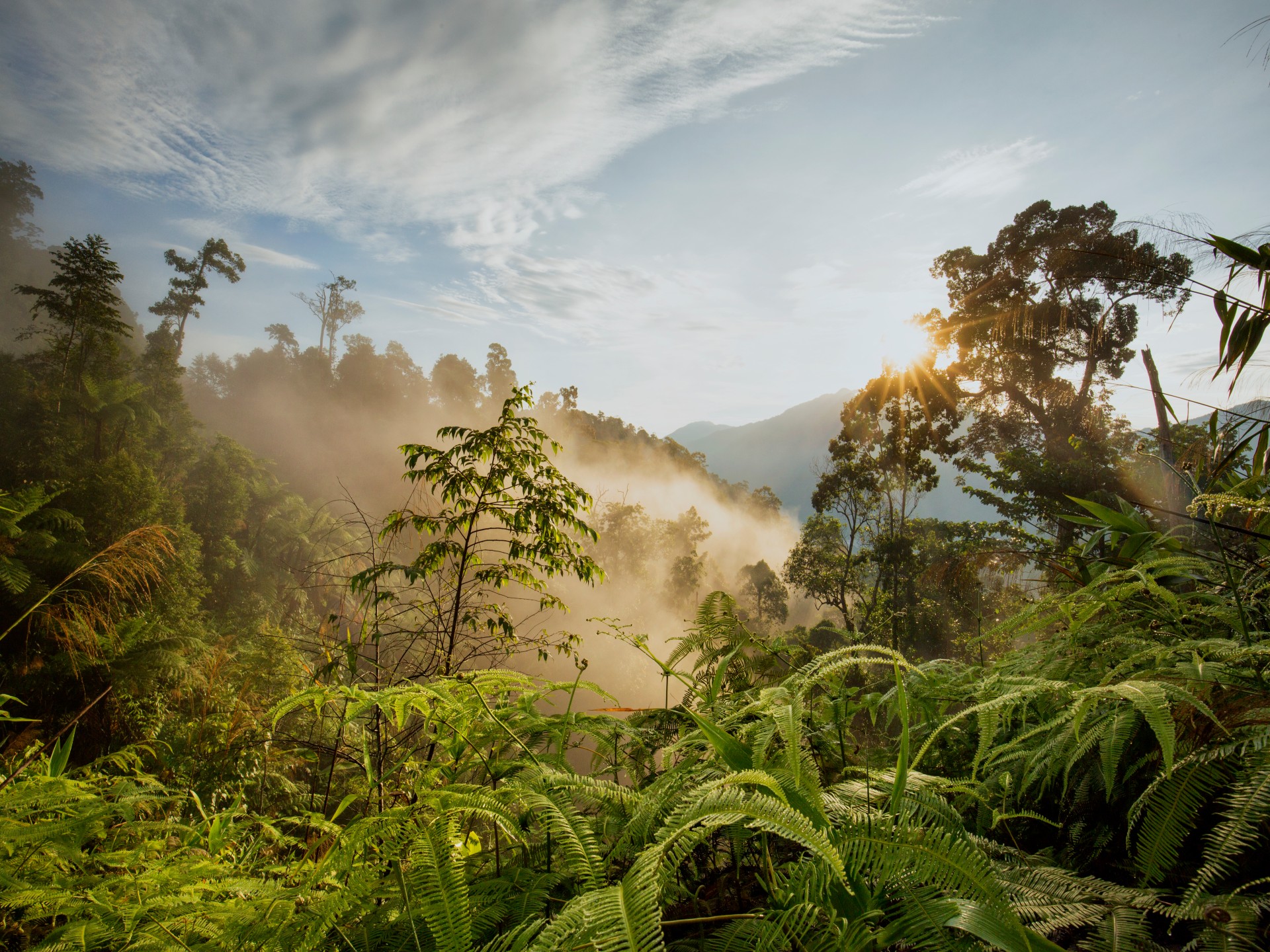
Forest reserve in Laos
How can this be done?
For example, by the IPCC and the IPBES publishing a special report on the interactions between biodiversity and climate. This would enable us to show precisely how they are interlinked and which measures are recommended. There is some confusion here. One thing that must not happen, for example, is that nature is used to cut back on climate protection measures. This is based on the idea that ecosystems help us to store CO2 that we could not otherwise dispose of. All we have to do is designate enough nature reserves and plant millions of trees, then all will be fine.
And then carry on as before.
Exactly. That would be completely wrong. For two reasons: Ecosystems cannot store the amount of CO2 required to keep global warming at a reasonable level. Secondly, every tenth of a degree increase in temperature harms nature – look at the corals and the damage to forests. If we do not reduce emissions, ecosystems will be damaged to such an extent that they will no longer be able to fulfil their climate protection function in the long term and this will accelerate climate change even further. In addition, they will then be less able to perform other functions such as providing sufficient food and water, which we humans urgently need. That is why the motto is: Emissions have to be reduced – and fast enough. There is no alternative.
How do climate and biodiversity protection work together?
They can reinforce each other positively, as well as negatively. That is why we have to look very closely. For example: bioenergy crops. They may be useful for storing CO2, but at a high price because they use land that is actually needed for agriculture and safe food. Agriculture, on the other hand, is one of the main reasons for the loss of biodiversity. If we clear even more forests to grow these bioenergy crops, then in the end we will achieve the opposite of what was intended. There are two general factors that we cannot escape: we need to give nature enough space to maintain biodiversity and perform its functions. And we need to reduce emissions quickly to meet climate targets.
How intense is the time pressure we are under?
Huge. Unfortunately, targets are set for climate and biodiversity time and time again – and then not implemented. We are seeing compromises everywhere, including now because of the Ukraine crisis. As a result, we are experiencing delays that we cannot afford. We know today that previous climate forecasts were too conservative and that risks will materialise more quickly than we thought. Five years ago, who would have thought that even in Germany we would be suffering from recurring heat waves and human lives would be lost? The temperature is now “only” 1.2 degrees higher compared to pre-industrial times. And we also still think that everything is fine up to 1.5 degrees. But even the 0.3 degrees that we will certainly see will be to our detriment. Even taking all planned mitigation measures together, we are currently heading towards global warming levels of more than 2.5 degrees and much more crisis-ridden times as a result.
Are you accusing politics of delays?
Politics yes, but also companies as a whole and, last but not least, the lobbyists who are preventing or delaying change. We still fail to regard the laws of nature as a set of traffic rules that clearly tell us what we can and cannot do. If we drive through a red light and the police catch us, we get a fine and even points on our licence. But it is different for climate and species protection. The red light is not even seen or we simply drive through it without thinking about the fine. Both are still voluntary topics for many, “nice to have”, but not existentially imperative. But they are imperative. This attitude is leading us into a disastrous future.
There is competition for the same piece of land: for energy production, for agriculture and for nature. How can this trilemma be resolved, especially in the current situation?
By taking a more long-term view. Take the hunger crisis and the discussion about fallow land where more grain could be produced in the short term. This was clearly at the expense of biodiversity. There are other solutions, such as significantly reducing meat production. Currently, 60 percent of our cropland is used for animal feed. We could use this land differently if we all ate more plant-based food. This would be healthier too, would improve life expectancy and would be good for the climate, because cattle, for example, also produce methane. To do this, you have to tell people honestly: change your habits. The discussion on this is already underway. But this type of change is often inconvenient. That is why we take the seemingly easier route – and then pay a higher price in the long term.
Could the current crisis also present an opportunity, for example, because we are switching more quickly to renewable energies?
The crisis could be an opportunity if we approached it in general terms and really adapted. We need, and I am deliberately using a military term here, a general mobilisation against climate change and the loss of nature. The longer we wait, the more painful the whole thing becomes.
And can't you even see the first stages at the moment?
Even the most obvious and simplest measures are difficult: speed limits on motorways is one such example. Formula 1, one of the most environmentally harmful sports, is not exposed and is not consistently being converted to electric. Luxury motorcycling – no restrictions. Air traffic – no requirements in terms of renewable fuel. We need clear rules to drive the transition.
What you are saying applies to developed countries. What about developing countries? Many of them are in a permanent crisis for various reasons. Can you understand that those in charge there may not primarily be thinking of renewable energy sources?
I can understand this less and less because these countries, too, are noticing how the climate crisis is putting them in existential hardship. Think of the deadly heatwave that India has recently experienced and which no longer permitted normal, everyday life. If you can see this, you actually have to say: we want to develop as quickly as possible, but only with renewable energies.
Does our failure to protect the climate and biodiversity also have something to do with our understanding of nature?
We consider ourselves to be superior and have created a great distance from nature in our daily lives, with the result that we no longer consider ourselves part of nature’s processes. This is a major perception gap that needs to be addressed.
Published on KfW Stories: 4 October 2022.

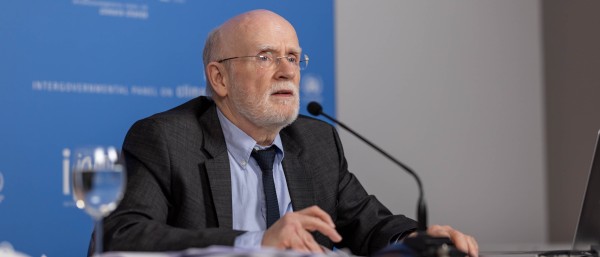
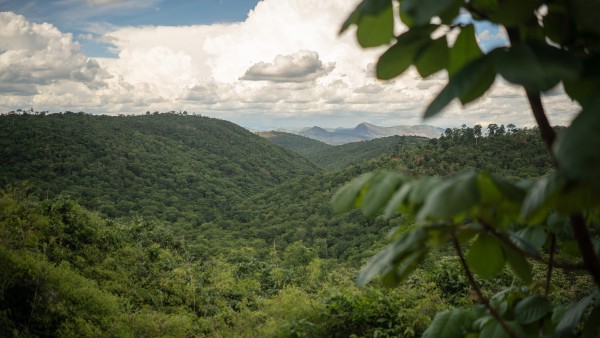
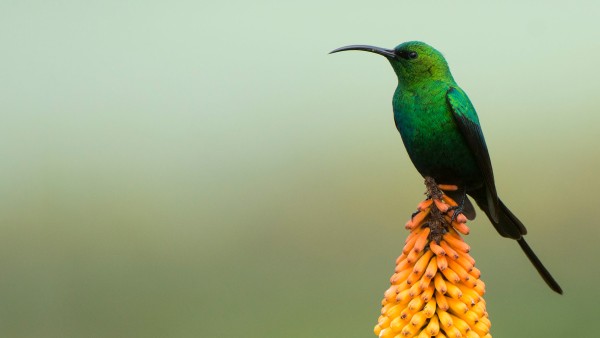
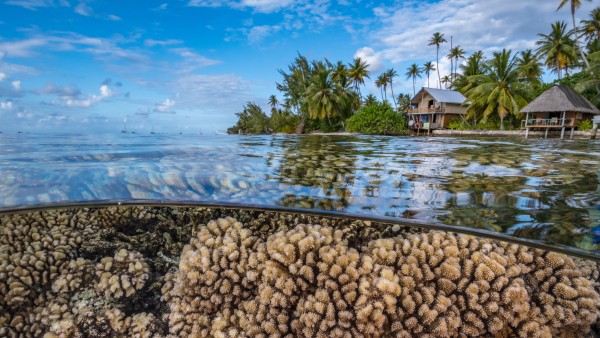
Data protection principles
If you click on one of the following icons, your data will be sent to the corresponding social network.
Privacy information